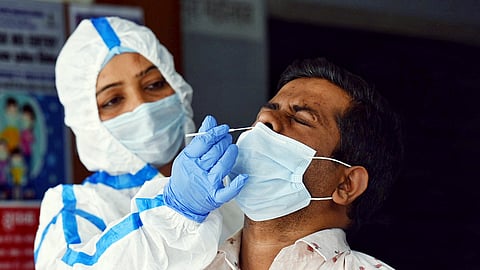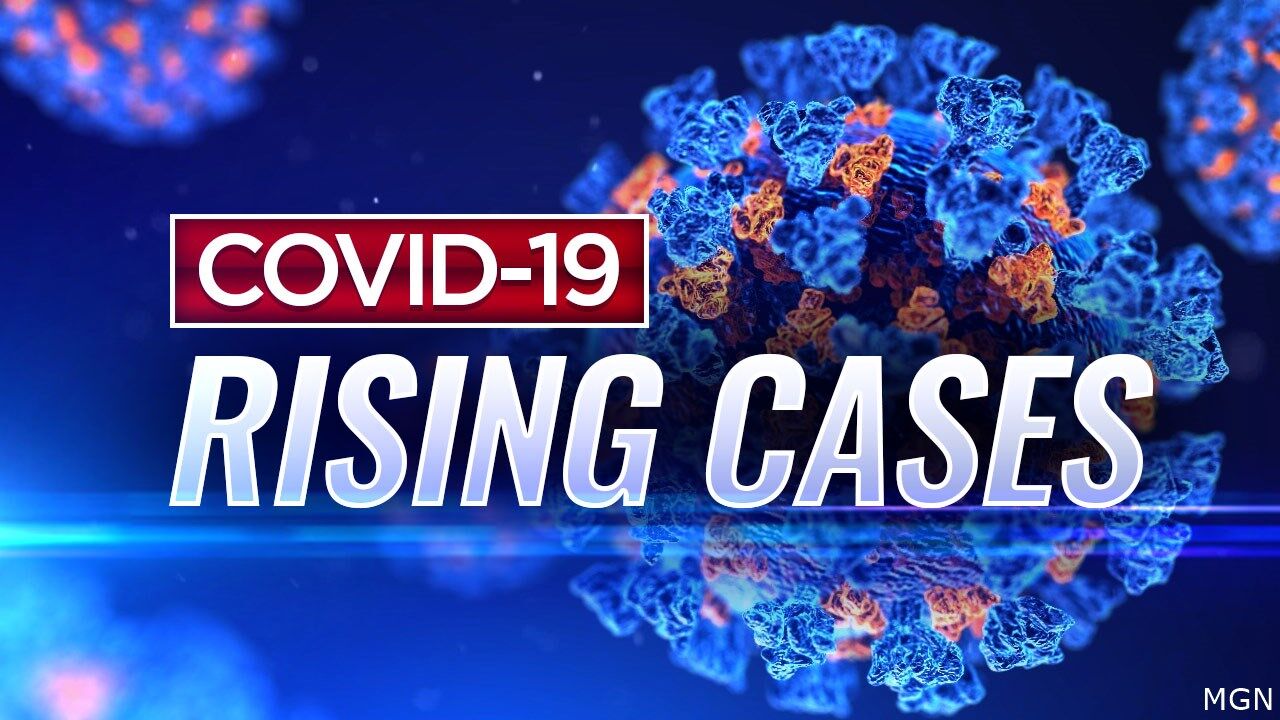Covid 19 recent news june 11
India Navigates Renewed COVID-19 Uptick: Vigilance Advised Amidst Evolving Variants
New Delhi, India – June 11, 2025 – India is currently experiencing a discernible increase in COVID-19 cases, with the active caseload inching towards the 7,000 mark. While the situation isn't indicative of an impending widespread crisis and isn't prompting a return to stringent restrictions, health authorities across the nation are emphasizing sustained vigilance and adherence to established public health protocols. This uptick, primarily driven by evolving Omicron sub-variants, underscores the continued need for a cautious and informed approach to the endemic virus.
Current Landscape: Cases and Geographic Distribution :
As of June 10, 2025, the Ministry of Health and Family Welfare reported 7,121 active cases nationwide, with approximately 6,800 new infections recorded in the latest 24-hour cycle. The cumulative death toll this year has reached 68, with three new COVID-related fatalities reported in the past day. This data highlights a gradual but steady rise in infections since late May, necessitating a renewed focus on individual and community-level precautions.
- Kerala continues to report the highest number of active cases, currently standing at around 2,223. Kerala's Health Minister Veena George has specifically urged increased care for vulnerable populations, including the elderly and those with comorbidities.
- Gujarat follows with approximately 1,223 active cases.
- West Bengal with 747 active cases.
- Delhi with 757 active cases, reporting 104 fresh cases recently.
- Maharashtra and Karnataka also show notable numbers, with 613 and 559 active cases respectively.
Understanding the Evolving Variants :
The current surge is largely attributed to highly transmissible Omicron sub-variants. JN.1 remains the predominant strain, accounting for roughly 53% of cases. While JN.1 is noted for its enhanced transmissibility, the symptoms it causes are generally milder compared to earlier variants.
Alongside JN.1, other sub-variants under close observation by the Indian SARS-CoV-2 Genomics Consortium (INSACOG) include NB.1.8.1, LF.7, and XFG. The XFG variant, a recombinant strain, has been detected in 163 samples across the country, with Maharashtra reporting the highest incidence. Although these variants exhibit strong immune evasion capabilities and rapid spread, there is no current evidence suggesting increased disease severity. Experts confirm that such variant evolution is a natural part of the SARS-CoV-2 virus's ongoing trajectory.
Recognising Current Symptoms and Recommended Precautions :
Symptoms associated with these prevailing variants tend to be less severe and can often be confused with common seasonal ailments. Patients typically report:
- Low-grade fever or chills
- Mild sore throat or throat irritation
- Nasal congestion or runny nose
- Occasional dry cough
- Headache and fatigue
- Gastrointestinal discomfort
The previously common loss of taste or smell is now a rare symptom. The milder presentation aligns with the understanding that widespread immunity from vaccination and prior infections is mitigating the severity of the illness for most individuals.
- Maintaining Hand Hygiene: Frequent hand washing with soap and water or using alcohol-based hand sanitizers.
- Mask Usage: Consider wearing masks in crowded or poorly ventilated indoor spaces, particularly for the elderly, individuals with underlying health conditions, pregnant women, and young children.
- Adequate Ventilation: Ensuring good air circulation in indoor environments.
- Prompt Testing and Isolation: Individuals experiencing symptoms are advised to self-isolate immediately, get tested, and consult a healthcare professional if symptoms persist or worsen.
- Vaccination Status: Staying up-to-date with COVID-19 vaccinations and booster shots, especially for at-risk groups, as vaccines remain effective in reducing the risk of severe disease, hospitalization, and death.
- Hospital Preparedness: Medical facilities are instructed to conduct testing for all patients presenting with symptoms of Influenza-Like Illness (ILI), Acute Respiratory Infection (ARI), or Severe Acute Respiratory Infection (SARI) to facilitate early detection and management.
While India has moved past the emergency phase of the pandemic, the ongoing circulation and evolution of the virus necessitate a pragmatic and adaptable public health response. The current situation underscores the importance of informed individual action and the continued readiness of the healthcare system to manage the evolving nature of COVID-19 as it transitions into a more endemic pattern.
website link - https://usefulspeak.com/jvvhw19x?key=027bcdead54ef5d3d318f277dc13cbcf
Thank you :
(if you like this article comment on a post and follow us)





Comments
Post a Comment